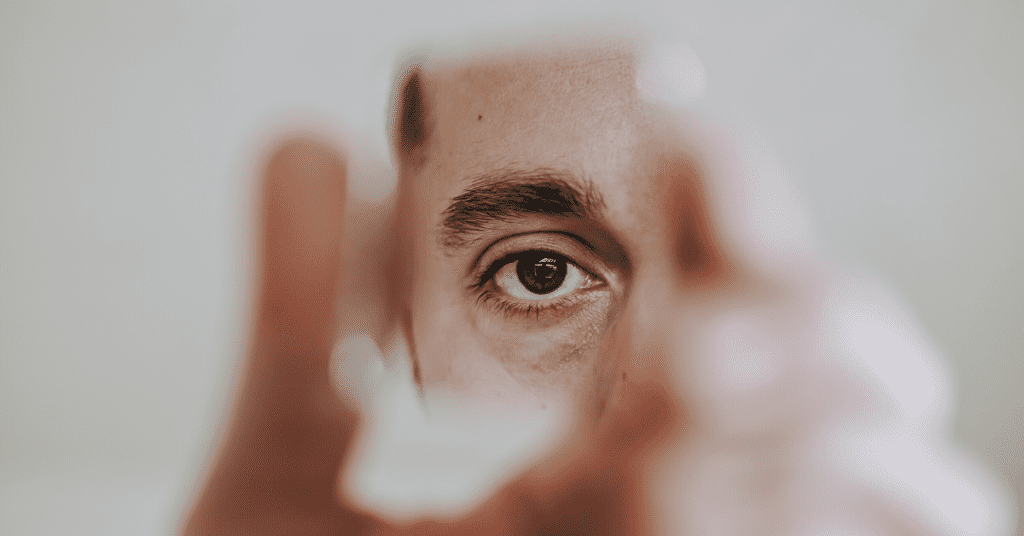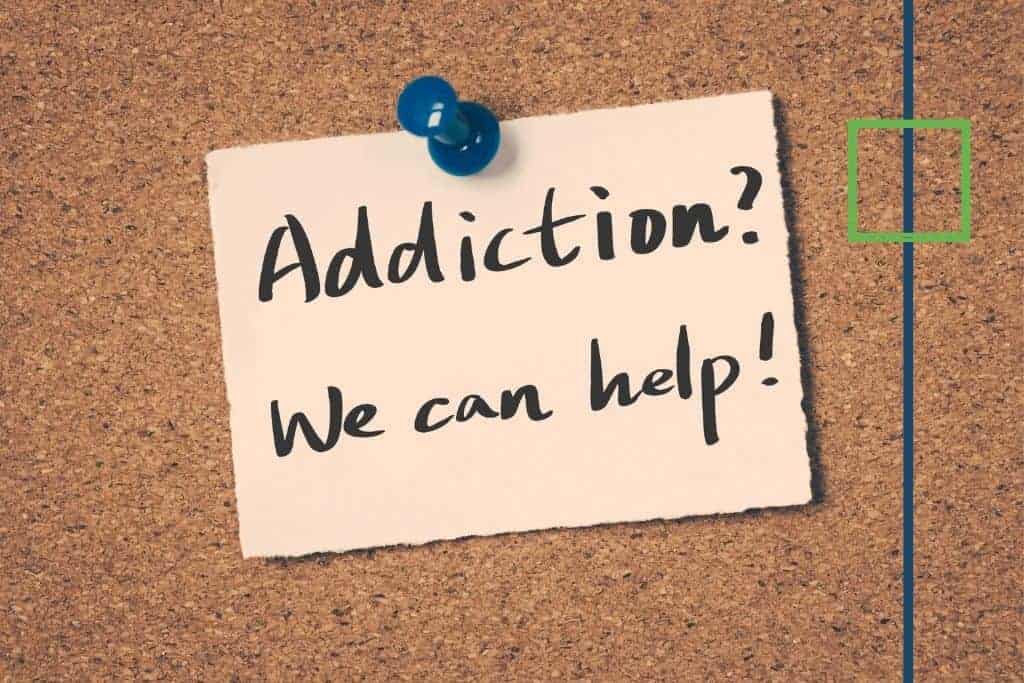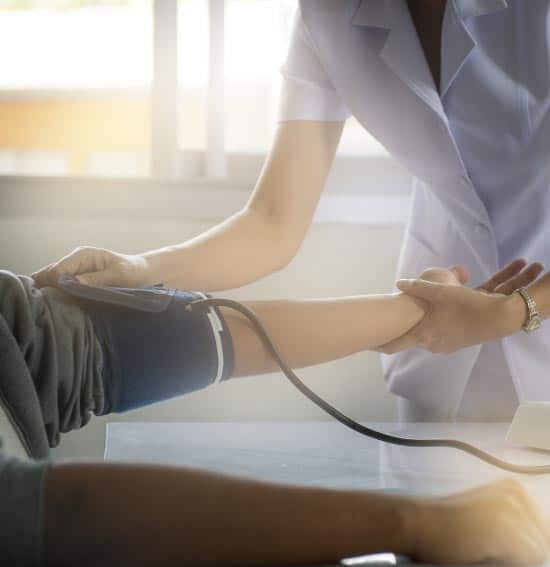What Is Crack?
Crack cocaine is a stimulant. That means it affects the central nervous system. Like other stimulants, cocaine gives you an energy surge. That, in turn, boosts your alertness, leaving you feeling a “high” from the drug. In addition, because a high from crack does not last very long, people need to repeatedly smoke it in order to maintain a high. This pattern of use increases the risk of cocaine addiction and cocaine overdose.
What is cocaine? Cocaine is a severely addictive psychoactive drug made from the leaves of the coca plant. It increases the natural chemical messenger (dopamine) levels in brain circuits related to the control of movement and reward. Cocaine comes in a few different forms [1]. The most common is a fine, white powder. It can also be made into a solid rock crystal known as crack cocaine. What is the difference between crack cocaine and cocaine?

Different Types Of Cocaine
Cocaine comes from the leaves of the coca bush (Erythroxylum coca), the main ingredient in cocaine. The leaf extract is processed to produce three different types of cocaine:
- Cocaine hydrochloride: a fine white powder with a bitter, numbing taste. Cocaine hydrochloride is often mixed, or ‘cut’, with other substances such as lidocaine, talcum powder or sugar to dilute it before being sold.
- Freebase: a white powder that is purer than cocaine hydrochloride. Freebase cocaine has a higher level of lipid solubility, and because of this, it enters the bloodstream and brain much faster than other forms of the drug. As a result, the high is faster than snorting cocaine, and it’s similar or sometimes faster than injecting it. Most individuals also feel that the high from freebase cocaine is more intense.
- Crack: crystals ranging from white or cream to transparent with a pink or yellow hue. It may contain impurities. Crack is the crystalline solid form of cocaine that has grown in popularity in the last few decades. The name crack cocaine came from the crackling sound the rock makes when it’s being heated. It is created using baking soda (sodium bicarbonate) and water instead of ammonia to remove hydrochloride from cocaine. Like the freebase cocaine, it is then heated and smoked. Cocaine and heroin often are abused together in a combination known as a “speedball.” According to a 2018 National Vital Statistic Report, cocaine and heroin are in the top 10 drugs most frequently involved in overdose deaths in the United States.

Get Your Life Back
Find Hope & Recovery. Get Safe Comfortable Detox, Addiction Rehab & Dual Diagnosis High-Quality Care.
Hotline(844) 597-1011Why is Crack So Addictive?
As with other drugs, repeated use of crack cocaine can cause long-term changes in the brain’s reward circuit and other brain systems, which may lead to addiction. The reward circuit eventually adapts to the extra dopamine caused by the drug, becoming steadily less sensitive to it. As a result, people take stronger and more frequent doses to feel the same high they did initially and to obtain relief from withdrawal.
However, other additional factors can make addiction more likely. These factors include:
- Genetics: Gene differences in the brain’s natural opiate system in the brain is linked to cocaine use.
- Co-Occurring Disorders: Disorders like mood problems are linked to more drug use.
- Environmental Influence: Lack of supervision and availability of drugs are risk factors for drug use.
- Gateway Substances: The use of other illicit substances is linked to more drug use.
- Psychological Factors: A history of aggressive behavior is a risk factor for drug use.
How Addictive Is Crack?
Crack is a powerful form of cocaine that can be smoked. Smoking delivers higher doses to the brain and produces a more rapid response than taking cocaine powder. After taking the drug for a period of time, you will begin to lack the will to control your intense physical and psychological compulsion for more and more hits.

There are always telling psychological, physiological, and behavioral changes in people who smoke crack. This is mainly due to the drug’s fast-acting nature and its effects on brain chemistry and different body organs. One obvious trait in crack users is an abnormal switch from excitement to dullness.
Crack cocaine spikes the chemicals responsible for pleasure and euphoria in the brain and also affects the reward system. When these chemicals are spiked, they cause intense “highs” which last for a very short period, usually 5 to 10 minutes. To recreate these feelings as much as possible, users repeatedly consume the drug in higher doses, causing the brain to become dependent on it.
Once the brain begins to rely on the presence of crack cocaine, you’ll feel uncomfortable without the drug, which will prompt you to compulsively seek out the drug and spend all you have in acquiring it. In addition, crack is more potent than regular powdered cocaine because it is smoked. It’s also cheaper but can destroy your finances because you’ll need to renew your dosage regularly to maintain the effects of the drug.
Is Crack More Addictive Than Cocaine?
The effects of smoking crack are instant and intense, and they can last up to 10 minutes. The effects of snorting cocaine can start within 5 minutes and last up to 30 minutes but are less intense than smoking. The fast, short nature of crack highs may make them more addictive. Crack is inhaled through the lungs and spreads through the body, producing the ‘high’ much more quickly, and lasts for a shorter time than snorting cocaine. This causes a cycle of bingeing and crashing, which puts the user at a greater risk of dependence.
The way you ingest cocaine plays a role in how it addictive it is, another expert adds. Smoking or injecting cocaine causes it to enter the bloodstream and reach the brain more rapidly than snorting it or rubbing it into your gums. The faster a drug gets to the brain, the more reinforcing and addictive it is. Since people generally associate powdered cocaine with snorting and crack cocaine with smoking, there’s a false belief that crack is more addictive. But if you smoke or inject powdered cocaine, it is just as addictive as smoking crack.
Get Help. Get Better. Get Your Life Back.
Searching for Accredited Drug and Alcohol Rehab Centers Near You?
Even if you have failed previously and relapsed, or are in the middle of a difficult crisis, we stand ready to support you. Our trusted behavioral health specialists will not give up on you. When you feel ready or just want someone to speak to about therapy alternatives to change your life call us. Even if we cannot assist you, we will lead you to wherever you can get support. There is no obligation. Call our hotline today.
(844) 597-1011Symptoms of Crack Abuse
Signs and symptoms particular to abusing cocaine include dry mouth, dilated pupils, restlessness, talkativeness, mood swings, insomnia, and hyperactivity. You can identify crack cocaine abuse in a loved one by looking out for the various signs detailed above. You can go on to get them help by helping them understand the dangers of their behavior. You can also stage an intervention with the help of other close friends and family or with the help of an expert interventionist.
Physical Symptoms of Crack Abuse: Short Term
If the suspected addict has recently gotten high, the following physical symptoms may be present:
- Increased blood pressure and heart rate
- Constricted peripheral blood vessels
- Increased rate of breathing
- Dilated pupils
Mental Symptoms of Crack Abuse: Short-Term
If the suspected addict has recently gotten high, the following mental symptoms may be present:
- Hyper-stimulation
- Intense euphoria
- Decreased appetite
- Anxiety and paranoia
- Aggressive, paranoid behavior
- Depression
- Intense drug craving
Physical Symptoms of Crack Abuse: Long-Term
If the suspected addict has been using for a long time, look out for these physical symptoms:
- Heart attack and heart disease
- Stroke
- Respiratory failure
- Brain seizures
- Sexual dysfunction (for both men and women)
- Reproductive damage and infertility (for both men and women)
Mental Symptoms of Crack Abuse: Long-Term
If the suspected addict has been using for a long time, look out for these mental symptoms:
- Severe depression
- Irritability and mood disturbances
- Aggressive, paranoid behavior
- Delirium or psychosis
- Tolerance and addiction, even after just one use
- Auditory and tactile hallucinations
- Increased frequency of risky behavior
It is important to remember that street drugs, like crack cocaine, go through a number of hands and are manufactured in many different ways. This means that an individual’s symptoms will be different from one person to another.

Crack Addiction Statistics
No matter how much crack is taken, it is dangerous. Some of the most common serious problems include heart attack and stroke. It’s just as dangerous to smoke crack as it is to snort or inject cocaine. A crack addiction habit costs a lot of money. Cocaine use often looks glamorous in TV shows and in the movies. But crack addiction often causes people to lose their jobs, their families, their homes, and their reputation. Learn the interesting facts about cocaine and common cocaine myths.
Cocaine is a highly addictive illegal drug used by 14-21 million people worldwide. In 2018 there are 874,000 new cocaine users. Users can be from all economic statuses, all ages, and all genders. Since cocaine is combined or ‘cut’ with other chemicals, people have no idea if the dose will be weak or strong. These other chemicals may include fillers, such as paint chemicals, cornstarch, fentanyl, and its analogs, which are added purely to boost profits.
First-class Facilities & Amenities
World-class High-Quality Addiction & Mental Health Rehabilitation Treatment
Rehab Centers TourRenowned Addiction Centers. Serene Private Facilities. Inpatient rehab programs vary.
Addiction Helpline(844) 597-1011Proven recovery success experience, backed by a Team w/ History of:
15+
Years of Unified Experience
100s
5-Star Reviews Across Our Centers
10K
Recovery Success Stories Across Our Network
- Low Patient to Therapist Ratio
- Onsite Medical Detox Center
- Comprehensive Dual-Diagnosis Treatment
- Complimentary Family & Alumni Programs
- Coaching, Recovery & Personal Development Events
Treatment for Crack Addiction
Unlike other substances, there are not any FDA-approved medications to specifically treat stimulant use disorder. However, medications may be used to help treat some of the general symptoms of withdrawal. Choosing to get treatment for crack cocaine addiction is a brave first step toward a healthier lifestyle.
Common treatment options include:
- Residential or inpatient treatment centers may be best for people with a severe addiction or those who have relapsed. People stay in inpatient facilities for the duration of treatment.
- Outpatient treatment centers allow you to live at home while going through crack cocaine rehab. Treatment can be at varying levels of intensity and duration depending on a person’s needs.
- Recovery housing acts as safe, sober, transitional housing for people stepping down from other forms of treatment. It can help people adjust to life without using crack cocaine before living independently.
Treatment services may include:
- Mutual support groups like 12-step programs involve regular meetings with others struggling with crack cocaine addiction to support the recovery process.
- Behavioral therapies like cognitive behavioral therapy and contingency management.
- Co-occurring disorder treatment for people with co-occurring mental health disorders.
- Continuing care planning helps people plan for the next steps in their recovery journey, like therapy or step-down treatment.
Can You Overdose on Crack?
Can you overdose on crack? Yes. Individuals who overdose on crack do so because of the highly addictive properties of crack cocaine and how it affects the brain and body. The route of administration for crack cocaine is important because of the way it enters the system. When crack cocaine is smoked, the drug quickly enters the body’s bloodstream before crossing the blood-brain barrier, which affects the central nervous system. Chest pains from convulsions may occur, and unintentional overdoses are common due to a surge in the desire for a stronger ‘high.’ The quality of cocaine in processed crack varies quite a bit, with the purity of street cocaine being highly variable.
Crack Overdose Symptoms
Overdose and overdose deaths are risk factors associated with crack cocaine misuse. The total number of cocaine overdose deaths rose from 5,419 in 2014 to 19,447 in 2019, making it even more important to prevent crack cocaine misuse. Combining crack cocaine with other substances may also increase the risk of overdose and other adverse health effects.
Symptoms of crack overdose include:
- Heart problems like chest pain or irregular heartbeat
- Irregular breathing
- High blood pressure
- Elevated body temperature
- Anxiety and agitation
- Hallucinations
Crack and Alcohol Abuse
Cocaine and alcohol don’t negate the effects of one another. Instead, they mask the effects, making people unaware of how intoxicated they are. As cocaine is a stimulant and alcohol is a depressant, the collective pressure they put on your body and mind can be dangerous. Some people use cocaine and alcohol simultaneously to increase the effects of both substances. However, this combination can easily lead to life-threatening consequences such as overdose or alcohol poisoning.
People who struggle with schizophrenia and bipolar disorder are especially at risk of substance abuse and polysubstance patterns. Research has shown that a particular demographic is more likely to develop an alcohol use disorder; people with bipolar disorder. This is because of the attempt to modulate mania linked with the condition.
Polysubstance use is, unfortunately, more common than we like to think, and one drug does enough harm to the body alone when abused. Both drugs can cause damage to the user’s body and social and emotional well-being, while also increasing their risk of long-term, chronic health issues or overdose. The health dangers of one drug are enhanced by polysubstance use and co-occurring disorder.

World-class, Accredited, 5-Star Reviewed, Effective Addiction & Mental Health Programs. Complete Behavioral Health Inpatient Rehab, Detox plus Co-occuring Disorders Therapy.
CALL(844) 597-1011End the Addiction Pain. End the Emotional Rollercoaster. Get Your Life Back. Start Drug, Alcohol & Dual Diagnosis Mental Health Treatment Now. Get Free No-obligation Guidance by Substance Abuse Specialists Who Understand Addiction & Mental Health Recovery & Know How to Help.
Cocaine Addiction Treatment Near Me
First and foremost, if you think that a loved one is abusing cocaine, you should first research the drug and addiction associated with it so that you can better understand what your loved one needs. Next, you must plan an intervention to provide your loved ones with options to battle their addiction in a safe and supportive environment. During this intervention, make sure that you offer compassion and support instead of judgment. Lastly, offer your support throughout the entire treatment process.
In addition, crack addiction can have severe physical and psychological effects, so it is essential to seek treatment as soon as possible. Inpatient drug rehab offers intensive care that can help you get through the early stages of withdrawal promptly. Since crack is usullu smoked, you might want to know “what does cocaine smell like? We’ve learned how it can be cut with fentanyl and rat poison which can lead to overdose and death, so it is important not to smell or taste it just to test its purity.
Medically-Assisted Detox
Detox is often considered the first stage of treatment. It will help you navigate the complicated process of withdrawal, but it doesn’t address patterns of thought and behavior that contribute to drug use. Various treatment approaches and settings can help provide the ongoing support necessary to maintain long-term sobriety after you complete detox.
Cravings are very common during detox and can be challenging to overcome. This often leads to relapse. Constant medical care provided during inpatient treatment helps prevent relapse. Clinicians can provide necessary medication and medical expertise to lessen cravings and the effects of withdrawals.
Psychotherapy
Several different modalities of psychotherapy have been used in the treatment of mental health disorders along with addiction, including:
- Cognitive Behavioral Therapy (CBT) – is an effective treatment that involves making changes in both the patterns of negative thoughts and the behavioral routines which are affecting the daily life of the depressed person for various forms of depression.
- Dialectical Behavior Therapy – is a comprehensive mental health and substance abuse treatment program whose ultimate goal is to aid patients in their efforts to build a life worth living. The main goal of DBT is to help a person develop what is referred to as a “clear mind.”
- Person-Centered Therapy – is a strategy that allows and encourages clients to understand and resolve their concerns in a safe, supportive environment.
- Solution Focused Therapy – is an approach interested in solutions that can be quickly implemented with a simple first step leading to further positive consequences.
Dual Diagnosis Treatment
Drug abuse and mental health disorders often co-occur. In many cases, traumatic experiences can result in a mental health disorder and substance abuse. Dual diagnosis rehabilitation treats both of these issues together. The best approach for the treatment of dual diagnosis is an integrated system. In this strategy, both the substance abuse problem and the mental disorder are treated simultaneously. Regardless of which diagnosis (mental health or substance abuse problem) came first, long-term recovery will depend largely on the treatment for both disorders done by the same team or provider.
Medication-Assisted Treatments
Medication-Assisted Treatments (MAT) for substance use disorders and mental health disorders are commonly used in conjunction with one another. This includes the use of medications and other medical procedures. During your rehab, the staff from your treatment facility will help you identify what caused your addiction and teach you skills that will help you change your behavior patterns and challenge the negative thoughts that led to your addiction. Sometimes, the pressures and problems in your life lead you to rely on substances to help you forget about them momentarily.
Please, do not try to detox on your own. The detox process can be painful and difficult without medical assistance. However, getting through the detox process is crucial for continued treatment. We Level Up provide proper care with round-the-clock medical staff to medically assist your recovery. So, reclaim your life, and call us to speak with one of our treatment specialists. Our counselors know what you are going through and will answer any of your questions.

PJ O’Brien Got His Life Back From Crack Addiction & Now Has A Loving Wife & Child During Sobriety Video
PJ O’Brien’s Addiction Recovery Story and Testimonial Video
“My name is PJ O’Brien.
I’m originally from Long Island, New York.
I have clean two years on October 4 of 2019.
My bottom was me smoking crack and eating chicken wings out of a dumpster for a month before I decided to get help from desperation for recovery.
Every day, you know, try to help out newcomers. I run a home group. I go to meetings every day and just never forget my worst days.
Got my life back. I got married, have a beautiful wife, and we just had our first child on August 31 that just passed.”
Does Addiction Rehab Work?
Longer stays in treatment frequently result in better outcomes, however success can vary from person to person. Detox alone is rarely beneficial for long-term recovery. Does treatment work? Attending treatment increases a person’s chances of long-term recovery compared to not attending.
Experience Transformative Recovery at We Level Up Treatment Centers.
See our authentic success stories. Get inspired. Get the help you deserve.
Start a New Life
Begin with a free call to an addiction & behavioral health treatment advisor. Learn more about our dual-diagnosis programs. The We Level Up Treatment Center Network delivers recovery programs that vary by each treatment facility. Call to learn more.
- Personalized Care
- Caring Accountable Staff
- World-class Amenities
- Licensed & Accredited
- Renowned w/ 100s 5-Star Reviews
We’ll Call You
Sources:
[1] NIDA – https://nida.nih.gov/publications/research-reports/cocaine/what-cocaine
[2] DEA – https://www.dea.gov/sites/default/files/2020-06/Cocaine-2020_1.pdf
[3] SAMHSA – https://store.samhsa.gov/sites/default/files/d7/priv/pep18-01.pdf
[4[ NCBI – https://www.ncbi.nlm.nih.gov/pmc/articles/PMC3202508/
[5] Cocaine Overdose – We Level Up NJ


